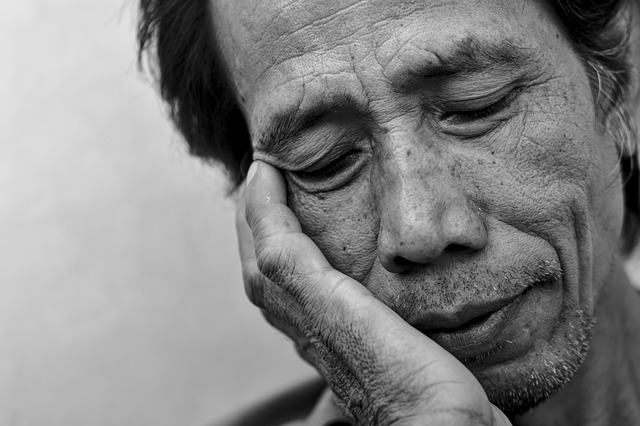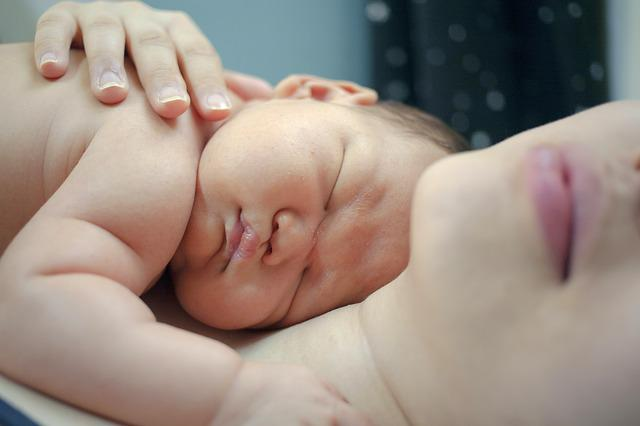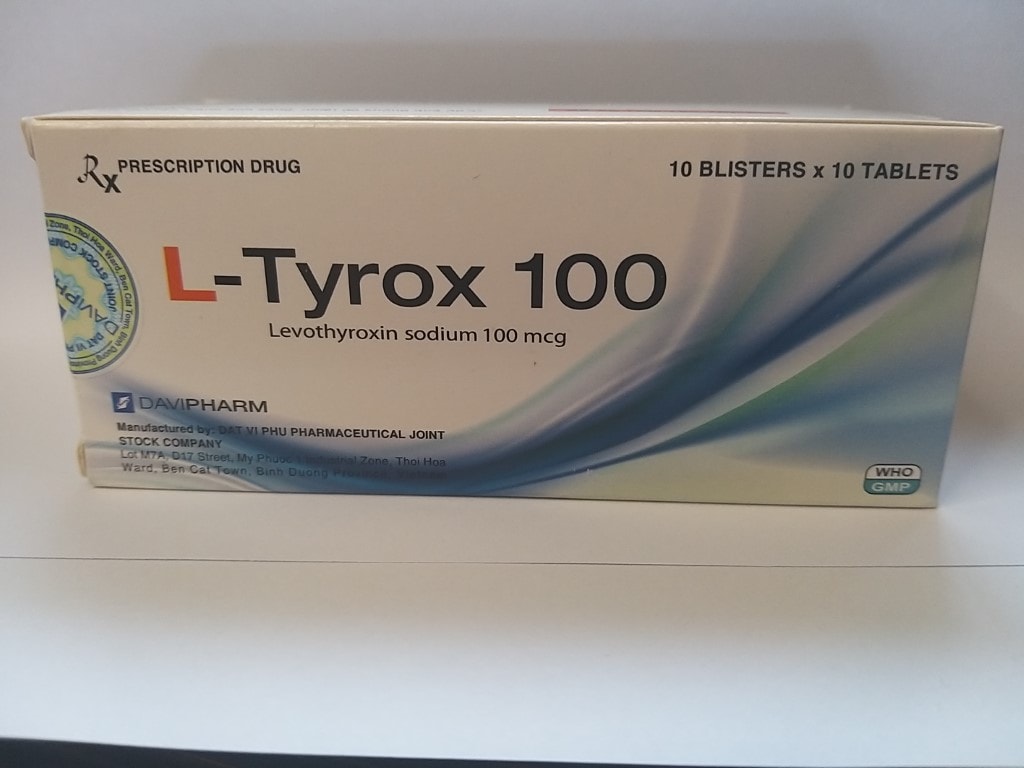Hypothyroidism is when the body doesn’t produce enough thyroid hormones. This can lead to metabolism, energy levels, weight, and mood problems.
Hypothyroidism is caused by several things, including genetics, age, and environmental factors. If you think you are hypothyroid, you must see a doctor for tests to confirm the diagnosis. There are treatments available that can help your symptoms.

What causes hypothyroidism?
Hypothyroidism is a condition that results when the thyroid gland does not produce enough thyroid hormone or not enough thyroid prohormone (T4) is converted into the active thyroid hormone(T3).
The thyroid gland is a small, butterfly-shaped organ in the front of the neck. The thyroid gland plays a vital role in regulating the body’s metabolism. There are several different causes of hypothyroidism. Some of the most common causes include Hashimoto’s thyroiditis, radioactive iodine therapy, and surgery to remove part or all of the thyroid gland.
Diagnosis of Hypothyroidism
Your doctor will likely diagnose you with hypothyroidism if your thyroid hormone production is low and your TSH level is high. Other tests that may be performed include a test to measure the levels of free thyroxine (fT4) and free triiodothyronine (fT3). If your doctor suspects that you have Hashimoto’s thyroiditis, a common cause of hypothyroidism, they may also order a test to measure the level of thyroid antibodies in your blood.
Types of Hypothyroidism:
There are four main types of hypothyroidism, each with its cause. The first type, primary hypothyroidism, occurs when the thyroid gland is damaged.
This damage can be caused by inflammation (such as Hashimoto’s thyroiditis), surgery, or radiation therapy. The second type, called central hypothyroidism, occurs when the pituitary gland is not functioning correctly.
This can be due to a tumor, injury, or other damage to the pituitary gland. The third type, tertiary hypothyroidism, occurs when the hypothalamus is not functioning correctly. This can be due to a tumor, injury, or other damage to the hypothalamus.
The fourth type, called thyroid hormone resistance, is a rare condition in which the body does not respond appropriately to thyroid hormone.
This can be due to a mutation in the thyroid hormone receptor gene. If you have any of these types of hypothyroidism, it is essential to see your doctor treat you appropriately.
Primary hypothyroidism
If you have primary hypothyroidism (underactive thyroid), your thyroid is being stimulated appropriately by the pituitary gland but can’t produce enough thyroid hormones for your body. The source of hypothyroidism is the thyroid gland itself. This can cause symptoms like weight gain, fatigue, and feeling cold all the time.
Primary hypothyroidism is treated with hormone replacement therapy, which involves taking natural or synthetic thyroid hormones to replace the ones your body isn’t making. With treatment, most people feel better and can manage their symptoms.
Secondary Hypothyroidism
In most cases of hypothyroidism, the problem lies with the thyroid gland itself and is called primary hypothyroidism.
However, in a small percentage of cases, the problem lies with the pituitary gland, located at the brain’s base, producing hormone called thyrotropin (TSH). This hormone signals the thyroid gland to produce thyroid hormone.
Iodine Deficiency Hypothyroidism
Iodine is an essential mineral that plays a critical role in thyroid function. The thyroid gland needs iodine to produce the hormones that regulate metabolism. If the body does not get enough iodine, it cannot make enough thyroid hormone, leading to an underactive thyroid (hypothyroidism). Iodine deficiency is the most common cause of hypothyroidism and can lead to a various health problems, including fatigue, weight gain, and mental sluggishness. Iodine deficiency is a severe problem in many parts of the world, but it can be easily prevented with iodine supplements. If you think you may be deficient in iodine, talk to your doctor about getting tested and starting a supplement regimen.
Congenital Hypothyroidism
Congenital hypothyroidism is a condition that results when the thyroid gland does not develop properly or is absent at birth. It can lead to stunted growth, developmental delays, mental retardations, and insufficient mental development.
Early diagnosis and treatment are essential to prevent long-term problems. Newborns with congenital hypothyroidism are usually born small and have a large head. They may also have a hoarse cry, constipation, and cold intolerance. Early diagnosis and treatment are essential to prevent long-term problems. Newborns with congenital hypothyroidism are usually born small and have a large head. They may also have a hoarse cry, constipation, and cold intolerance.

Hashimoto Thyroiditis
Hashimoto’s thyroiditis is an autoimmune thyroid disorder that results in inflammation of the thyroid gland. The thyroid gland is a small, butterfly-shaped gland located in the front of the neck. It produces hormones that regulate metabolism, growth, and development. In Hashimoto’s disease, the body’s immune system attacks the thyroid gland, causing inflammation and damage. This can lead to a decreased production of thyroid hormone, which can cause problems such as fatigue, weight gain, and constipation. While there is no cure for Hashimoto’s disease, treatment can help to manage the symptoms and prevent further damage to the thyroid gland.
Hypothyroidism caused by Surgical Removal or Radiation Treatment therapy
Though it can occur at any age, hypothyroidism is most common in middle-aged women. There are a number of different causes of hypothyroidism, but the most common is surgical removal (thyroid surgery) or radiation treatment therapy of the thyroid gland. While hypothyroidism is not usually life-threatening, it can cause serious problems if left untreated. According to the American Thyroid Association, untreated hypothyroidism can lead to an increased risk of heart disease, infertility, and even depression.

Symptoms of hypothyroidism: What to look for in Yourself or your Loved Ones?
Symptoms of hypothyroidism (underactive thyroid) can be subtle and may develop slowly. Left untreated, hypothyroidism can lead to serious health problems, such as heart disease, mental health problems, and infertility. If you think you or someone you love may have hypothyroidism, watch for these symptoms:
Hypothyroidism Symptoms: Fatigue
Hypothyroidism is a condition in which the thyroid gland does not produce enough thyroid hormone. This can lead to a wide range of symptoms, including fatigue. Being constantly tired is one of the most common symptoms of hypothyroidism, and it can be extremely debilitating.
Fatigue is a general feeling of tiredness that can be triggered by many things, including physical activity, emotional stress, and illnesses. However, people with hypothyroidism often experience fatigue that is not relieved by rest or sleep. This type of fatigue can interfere with daily activities and result in a decreased quality of life.
In fact, fatigue is often one of the first signs that something is wrong with the thyroid. If you are experiencing fatigue, it is important to speak with your doctor.
Hypothyroidism Symptoms: Lethargy
Lethargy is a feeling of tiredness, lack of energy, or apathy. It can be caused by many things such as lack of sleep, stress, or illness. One common cause of lethargy is hypothyroidism, which is a condition in which the thyroid gland does not produce enough active thyroid hormone (T3). Physical activity can be especially difficult, and even simple tasks can feel like a chore. In severe cases, people with hypothyroidism may need to sleep for long periods of time (10-12 hours per day) in order to function. In some cases, lifestyle changes such as diet and exercise may also be recommended. If you are experiencing lethargy and think it may be related to hypothyroidism, see your doctor for diagnosis and treatment.

Hypothyroidism Symptoms: Weight gain
One of the most common symptoms of hypothyroidism is weight gain. Although weight gain can be caused by a number of factors, it is often one of the first signs that something is wrong with the thyroid gland.
While diet and exercise are important for managing weight, there are other factors to consider as well. For example, people with hypothyroidism may have a slower metabolism, which can make it harder to lose weight. In addition, some medications used to treat hypothyroidism (levothyroxine) can cause weight gain while others like liothyronine will cause weight loss.
Because of the potentially serious consequences of this condition, it is important for anyone who is experiencing unexplained weight gain to consult with a doctor. Blood tests can be used to confirm the diagnosis of hypothyroidism and treatment can then be started.

Hypothyroidism Symptoms: Constipation
One symptom of hypothyroidism is constipation. T3, a hormone produced by the thyroid gland and liver, helps the body to use energy and to stay warm. T3 levels can drop if the thyroid gland is not functioning properly or if T4(levothyroxine) is not being converted to T3 properly. This can lead to constipation.
Family history of thyroid problems may also play a role in developing hypothyroidism. If you have a family member with a thyroid condition, you may be more likely to develop hypothyroidism yourself. Talk to your doctor if you have concerns about your family history and your risk of developing hypothyroidism. If you experience any of these symptoms, talk to your doctor. Hypothyroidism can be treated with medication. With treatment, you can manage your symptoms and live a healthy life.
Hypothyroidism Symptoms: Dry skin
One of the main ways that hypothyroidism affects the skin is by decreasing the amount of energy that the skin cells have. This can lead to a lack of sweat, which can cause the skin to become dry and cracked. Additionally, the lack of active thyroid hormone can make the skin become coarse and scaly.
While dry skin is one of the most common symptoms of hypothyroidism, it is not the only one.
Hypothyroidism symptoms: Feeling Cold
One of the telltale signs that you might have an underlying condition, such as hypothyroidism, is feeling cold all the time. Despite layering up and taking other steps to stay warm, you may find that you’re always chilly. This happens because low levels of thyroid hormone can slow down your metabolism, which can lead to a decrease in body temperature. If you’re experiencing these symptoms, it’s important to see your doctor for a diagnosis and treatment.
Hypothyroidism Symptoms: Bradycardia (Slow Heart Rate)
Hypothyroidism, or an underactive thyroid, is a condition in which the thyroid gland does not produce enough of the hormone thyroxine. Bradycardia is a condition where the heart rate is abnormally slow. While bradycardia can be caused by a variety of factors, it is one of the potential symptoms of hypothyroidism. The link between hypothyroidism and bradycardia is thought to be due to the fact that the thyroid hormone helps to regulate the heart rate. When levels of thyroxine are low, the heart rate may slow down as a result. In addition to bradycardia, other potential symptoms of hypothyroidism include fatigue, weight gain, and depression. If you suspect that you may have hypothyroidism, it is important to see a doctor for diagnosis and treatment. Left untreated, hypothyroidism can lead to serious health problems.
Hypothyroidism Symptoms: Depression

Hypothyroidism Symptoms: Aches and pains in the muscles and joints
Hypothyroidism, or an underactive thyroid, is a condition in which the thyroid gland doesn’t produce enough of the hormones needed to regulate metabolism. This can cause a variety of symptoms, including muscle stiffness, aches, and tenderness. The cause of hypothyroidism is typically inflammation of the thyroid gland, which can be due to autoimmune disease, surgery, or radiation therapy.
Hypothyroidism Symptoms: Menstrual problems
One of the lesser-known symptoms of hypothyroidism is menstrual problems. Many women with hypothyroidism find that their periods become irregular or stop altogether. Others may have heavy bleeding or cramps. Some women also find that their PMS symptoms get worse when they have hypothyroidism.
Primary hypothyroidism can cause amenorrhea or the absence of periods. Secondary hypothyroidism, which occurs when the pituitary gland doesn’t produce enough of the hormone TSH (thyroid-stimulating hormone), can lead to oligomenorrhea, or infrequent periods.
Hypothyroidism can also cause menorrhagia or heavy periods. This is often due to myomas, or non-cancerous uterine tumors, which are more common in women with hypothyroidism. Menorrhagia can also be caused by endometriosis, a condition in which tissue from the lining of the uterus grows outside the uterus.
If you are experiencing any of these menstrual problems and think they may be related to your thyroid health, talk to your doctor. They can do blood tests to check your thyroid hormone levels and see if you need treatment for hypothyroidism.
If you notice any of these symptoms, especially if they come on suddenly or persist for a long time, see your doctor for a blood test to check your thyroid hormone levels. With treatment, most people with hypothyroidism can live normal, healthy lives.
Hypothyroidism symptoms can vary from mild to severe, and left untreated it can have serious implications for your health.
Hypothyroidism is a condition in which the thyroid gland does not produce enough thyroid hormone. This can result in a wide range of symptoms, from mild to severe. Left untreated, hypothyroidism can have serious implications for your health.
People with hypothyroidism may feel tired all the time, even after getting a good night’s sleep. Other common symptoms include weight gain, constipation, and dry skin.
Some people with hypothyroidism experience more severe symptoms. If you experience any of these symptoms, it is important to see your doctor right away.
How does diet affect hypothyroidism?
Diet can play an important role in managing hypothyroidism, also called an underactive thyroid. Eating a diet that is rich in certain nutrients can help to manage these symptoms. Iodine, zinc, selenium, protein, and carbohydrates are all important for people with hypothyroidism. A low-carb diet can also be beneficial as it can lower the conversion of T4 to T3, which is the active form of thyroid hormone. By getting enough of these nutrients and following a healthy diet, people with hypothyroidism can better manage their condition.
How is hypothyroidism treated?
Hypothyroidism is a condition in which the thyroid gland does not produce enough of the hormone thyroxine.
The pituitary gland, located at the base of the brain, regulates the production of thyroxine by releasing a hormone called thyroid-stimulating hormone (TSH).
When TSH levels are low, the thyroid gland produces less thyroxine (T4).

Levothyroxine (brand names: Synthroid, Levothroid, Unithroid) is a man-made form of thyroxine and is the most common treatment for hypothyroidism.
Liothyronine (brand name: Cytomel) is a synthetic form of triiodothyronine (T3). It is sometimes used along with levothyroxine to treat hypothyroidism.
Natural desiccated thyroid (brand names: VitaliThy, Armour Thyroid, Real Thyroid, Nature-thyroid, NP Thyroid…) is derived from the dried thyroid gland of pigs and contains both T4 and T3 hormones.
A doctor may prescribe natural desiccated thyroid for some people with hypothyroidism who:
- Cannot tolerate levothyroxine or liothyronine.
- Patients who have persistent hypo symptoms despite treatment with levothyroxine
- Patients who prefer a natural product.
Treatment for hypothyroidism generally involves taking thyroid hormone replacement daily.

7 thoughts on “What is hypothyroidism and what are its symptoms?”
Pingback: NP Thyroid vs. WP Thyroid which is better? - Thyroid And Metabolism
Pingback: Best Food for Hypothyroidism - Thyroid And Metabolism
Pingback: Scary Side Effects of Levothroid - Thyroid And Metabolism
Pingback: WP Thyroid vs. liothyronine (Cytomel), which is better? - Thyroid And Metabolism
Pingback: NP Thyroid Side Effects - Thyroid And Metabolism
Pingback: Hair Loss with Hypothyroidism - Thyroid And Metabolism
Pingback: Hypothyroidism in children: Real Life Example - Thyroid And Metabolism